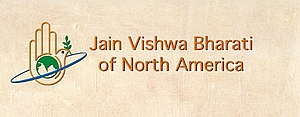Art of Speaking
Mind body and speech are intertwined, and together form the driving force of life. Speech, the foundation of human relationships and social interaction, has been a boon to civilization. Animals cannot speak, and therefore any grouping of them (like cattle) is not deemed a society. Speech reveals and expresses intent. It is the fundamental means for communications between individuals. Although Animals can make a few simple sounds, they lack the ability to converse verbally. Only human beings have been empowered with comprehensible speech and have used it to formulate clear languages.
Speaking abilities vary from person to person. Some of us are more articulate and expressive. Some of us stutter or have other speech impediments. Some others, despite speaking distinctly, are unable to put forth their ideas in a meaningful manner. Few are those who can enunciate clearly and convey their thoughts intelligibly. This dexterity in speech can be a natural gift or a learned and mastered art.
Words and sentences transmit thoughts. Words tend to play a dual role; they can create problems and also solve them. Words can misguide as well as elucidate. In order to be effective, speech needs to be moderate, soft, truthful, and thoughtful.
Moderation In speech can be described as the use of right words in the right number at the appropriate time in all conversations and transactions. Some people talk more than required and so deviate from the subject. Their indiscretion can easily make a mountain out of a molehill and cause trouble.There is truth in the saying,”If a word is worth a coin, silence is worth two.”
In ancient Jain Scriptures, Moun (silence) used to refer to knowledge but now it generally means not speaking. Observing Moun for a few hours can be peace giving, energy saving, and relaxing. But often people tend to speak after Moun as if to make up for the lost time! I believe that although remaining silent for a specific period is good, it is even better not to speak too much and unnecessarily at any time. There is no need for the self-imposition of complete silence if one can routinely control the amount and content of their speech. Limited speech is the simplest way of keeping Moun vrata (the religious observance not to speak). Maintaining silence may appear easy, but it is actually a very difficult practice.
“Moukharyam laghavakaram,
mounam unnati-karakam,
mukharo nupuro pade,
kanthe haro virajate.”
"Talkativeness marginalizes a person whereas silence elevates him.
A Garland around the neck is for beautification but why are ankle-bells placed on the feet?”
The poet suggests that the ankle bells are too noisy and are therefore relegated to the feet, whereas the silent, peaceful garland gets a place of honor on the neck. This example illustrates that silence earns respect and loquaciousness invites censure.
Views of Acharya Mahashraman from "LIFE, Twelve Golden Principles for Holistic Living"
Upcoming Events
- Gyanshala Annual Day - Sunday, June 7
- Annual Spiritual Family Camp - June 12-14 Arsh Vidya, PA
- Gyanshala Summer Prayer Sessions - Wednesdays - July 8 - Aug 12
- Blood Drive - September 7
- Paryushan - September 18-27
Akshay Tritiya

Akshay Tritiya was celebrated in the auspicious presence of Samani Shukla Pragyaji and Samani Unnata Pragyaji, on May 2, 2015, at the Six Mile Run Church in Franklin Park, NJ.
Namokar Mantra Jaap by all attendees, and led by Samanijis, marked the beginning of a melodious event. Masters of ceremony Ankita Jain and Dipali Jain expertly led the audience through the program of the day. Mangalacharan by Kamalji Daga, set the mood for the Bhajan competition. The Chairman of JVBNA, Shri Pratapji Jain formally welcomed Samani Shukla Pragyaji and Samani Unnata Pragyaji, and shared important information regarding the presence of Samanijis at the JVBNA center.
The second edition of the Gyanshala magazine was launched with the blessings of Samanijis and under the successful teamwork of Reena Bothra, Supriya Bothra and Prachi Shah (coordinator of Gyanshala), teachers and students, and with support from Madhumita Sacheti.
The 13 participants of the Bhajan competition - children and adults alike - set forth a very difficult task for the judges - Samani Shukla Pragyaji, Kamal ji Daga, and Sanjay ji Jain. The Bhajan competition winners were Manasi Sulakshana, in first place, and Natasha Modi in the 2nd.
The pravachan by Samani Unnata Pragyaji started off with a recitation of a poem by Acharya Mahapragyaji, about ”Mann”, keeping the course of the theme of the evening, followed by Jaap of Om Rhim Shrim, Arham Rishabh Devayo Namah!
Samani Shukla Pragyaji’s pravachan started off with a stotra, and her discourse focused on how great you can be simply by your deeds, as no one is born great. She also spoke about being aware of our every action, something which is very important. She prescribed four capsules for a happy life: control your tongue, control your senses, control your desires, and control your emotions.
The evening came to a blessed ending with Mangal Path by Samanijis.

Join us for Annual Spiritual Family Camp to be held
from 12th - 14th June 2015 at Poconos, PA.
The theme of the camp is:
UNDERSTANDING JOY AND SORROW
Based on the book by Acharyashri Mahapragya
With the blessings of Acharyashri Mahashraman, the camp will be led by four distinguished Samanijis from JVB.
Registration Begins May 12.

